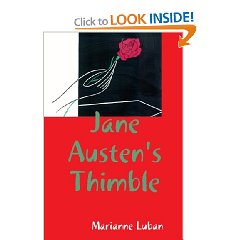
In the Book of Exodus, the Egyptians refer to a foreign group within their land as "Hebrews" while the same call themselves "Children of Israel" [Jacob]. When Moses addresses Pharaoh, he, himself, employs "Hebrews" when speaking about his people.
This can be construed as an indication that even the author[s] of this Biblical text realized that "Hebrew" could be a commonly used Egyptian word. Josephus, the historian, wrote that the Hebrews were first called "Ermuth" but, after the time of Abraham, they became referred to by the more familiar appellation. Tell el Mukayyar can be identified with the Sumerian city of Ur, which in ancient texts was called Uriwa or Urima--hence perhaps Urima can be connected to "Ermuth". I am aware of the Biblical "Eber", [Gen. 10:24] whose name seems to mean "beyond", but I don't think this has anything to do with him. I do find it plausible to connect "Hebrew" " to Hurrian because in that language "apiri" has the meaning of "wanderer". Therefore, the followers of Abraham had been named by a Hurrian people somewhere in northern Mesopotamia.
And, yet, the term "Hebrew" seems more complex. Far removed from the time of Abraham and the fall of Ur, in the earlier part of the 18th Dynasty, Amenhotep II [who had inherited an empire] captured "aprw"or "apwiryw" [spelled variously] and at the same time some warriors known as "maryanna", some Indic elite class who, at one period, seemed to be the rulers of the Hurrians in a place called Mitanni. However, by the time of Akhenaten of the same dynasty, the leader of the "aprw" was called "Labayu", evidently a Semitic name. These "aprw" caused a great deal of difficulty for the Egyptian king and his Canaanite vassals--and ultimately seem to have killed all those princes loyal to Egypt.
By then, it seems to me, the notion of who was an "aprw", in its foreign context, seems to have changed. It is perhaps too facile to conclude that, while once many of the Hebrews were Hurrians, after they were enslaved in Egypt, became involved with the descendant of a "wandering Aramean" ("aAmw", actually pronounced "Aramu")--Moses--, came to Canaan, and began to be Semitic speakers, adopting the language of the territory. But it is as good an explanation as any, in my opinion. However, that would have had to have happened in the interim between Amenhotep II [who, from the records, brought back more captives to Egypt than is otherwise known] and Akhenaten. That involves a period of less than a century and, if some attempt at ethnic cleansing was perpetrated in Egypt, little distinction between "Aramean" and whomever else would have occurred. That may have included "an undesirable portion" of the older Egyptian populace, itself, a veritable "mixed multitude". And, yes, there are indications of a Hurrian element in Egypt in this very interim, including many coming to Egypt due to the Mitanni brides of Thutmose IV and his son, Amenhotep III. But, by the era of Akhenaten, relations between these two nations seem to have broken down. And the word "aprw" seems to have become a synonym for "rebel".
This can be construed as an indication that even the author[s] of this Biblical text realized that "Hebrew" could be a commonly used Egyptian word. Josephus, the historian, wrote that the Hebrews were first called "Ermuth" but, after the time of Abraham, they became referred to by the more familiar appellation. Tell el Mukayyar can be identified with the Sumerian city of Ur, which in ancient texts was called Uriwa or Urima--hence perhaps Urima can be connected to "Ermuth". I am aware of the Biblical "Eber", [Gen. 10:24] whose name seems to mean "beyond", but I don't think this has anything to do with him. I do find it plausible to connect "Hebrew" " to Hurrian because in that language "apiri" has the meaning of "wanderer". Therefore, the followers of Abraham had been named by a Hurrian people somewhere in northern Mesopotamia.
And, yet, the term "Hebrew" seems more complex. Far removed from the time of Abraham and the fall of Ur, in the earlier part of the 18th Dynasty, Amenhotep II [who had inherited an empire] captured "aprw"or "apwiryw" [spelled variously] and at the same time some warriors known as "maryanna", some Indic elite class who, at one period, seemed to be the rulers of the Hurrians in a place called Mitanni. However, by the time of Akhenaten of the same dynasty, the leader of the "aprw" was called "Labayu", evidently a Semitic name. These "aprw" caused a great deal of difficulty for the Egyptian king and his Canaanite vassals--and ultimately seem to have killed all those princes loyal to Egypt.
By then, it seems to me, the notion of who was an "aprw", in its foreign context, seems to have changed. It is perhaps too facile to conclude that, while once many of the Hebrews were Hurrians, after they were enslaved in Egypt, became involved with the descendant of a "wandering Aramean" ("aAmw", actually pronounced "Aramu")--Moses--, came to Canaan, and began to be Semitic speakers, adopting the language of the territory. But it is as good an explanation as any, in my opinion. However, that would have had to have happened in the interim between Amenhotep II [who, from the records, brought back more captives to Egypt than is otherwise known] and Akhenaten. That involves a period of less than a century and, if some attempt at ethnic cleansing was perpetrated in Egypt, little distinction between "Aramean" and whomever else would have occurred. That may have included "an undesirable portion" of the older Egyptian populace, itself, a veritable "mixed multitude". And, yes, there are indications of a Hurrian element in Egypt in this very interim, including many coming to Egypt due to the Mitanni brides of Thutmose IV and his son, Amenhotep III. But, by the era of Akhenaten, relations between these two nations seem to have broken down. And the word "aprw" seems to have become a synonym for "rebel".
There is, however, a 19th Dynasty text that demonstrates that "Israel" and "aprw" was synonymous. That is the "Israel Stela" of King Merneptah, son of Ramesses the Great. There is a section of the text, rife with puns and rhymes, mentioning certain defeated Canaanite towns--even Canaan, itself. And then there is "wn YziriAr fkt bn prtw" or "Israel is laid waste; it's seed is no more". This would have been vocalized as "oun Yisrael foke ban apriou", the last word being a pun on "Hebrews".








No comments:
Post a Comment